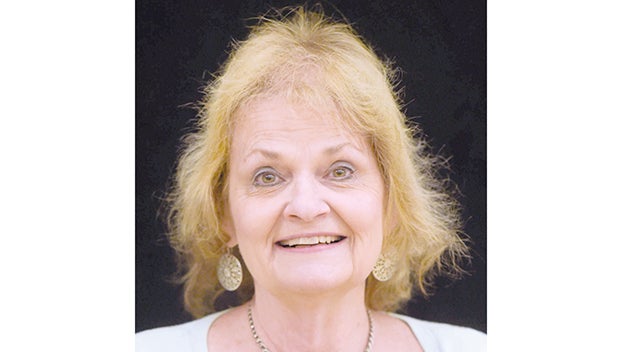OPINION
New book touches on problems faced in addiction
Published 2:26 pm Monday, November 1, 2021

- Kathy Miles
Kathy L. Miles, Coordinator
Boyle County Agency for Substance Abuse Policy, Inc.
Sam Quinones is back – with a message as powerful as the stories of addiction in his 2015 bestselling book, “Dreamland.” This month, “The Least of Us: True Tales of America and Hope in the Time of Fentanyl and Meth,” will again bring to America his combination of deep listening, delving into complicated problems, compassion, and a little bit of prophecy, regarding America’s continuing addiction crisis.
Many of our local citizens read and studied “Dreamland”, and found it to be all too relevant to our situation in central Kentucky. Quinones challenged us to look for underlying community contributors to the growing opioid addiction crisis. He told the story of Portsmouth, Ohio, and its swimming pool, called Dreamland, which symbolized a community of shared values and hope for its children when the pool was built. And, he chronicled the loss of good community life over time, which paralleled the rise in illegal and legal drug misuse, addiction, and crime. His words challenged many of us to look hard at how we could do better to contribute to the lives of our neighbors. We thought more about the importance of prevention.
Now, in the new book, Quinones updates us on addiction in America since the 2015 publication. This time period obviously includes the COVID-19 pandemic. It also includes the rise in availability of a more dangerous version of Methamphetamine, a huge increase in the availability of deadly Fentanyl, and a U.S. overdose death rate in 2020 that was staggering. On the positive side, It has been a time when more funding was available for the development of treatment and recovery resources. Our community is one of many across the country that have made great strides in adding needed programs and services, resulting in more people enter long term addiction recovery.
In a recent virtual conversation with some central Kentuckians, held during National Recovery Month, Quinones talked about his experiences that led to this second book. He expressed much concern about the kind of drugs easily available now in most communities. He simultaneously shared stories of hope from people in recovery, and entire communities coming together to address problems. He was stronger than ever about the need to rebuild communities at the local level, urging “small acts of community repair”. He sounded more like a preacher than an author, when he said that we must understand that a community is only as strong as its most vulnerable.
We can’t ignore these words in Boyle County. We do have many people doing “small acts of community repair”. You could say that, for instance, about our volunteers who transport people to treatment programs, our adults and youth who are learning how to save lives by administering Naloxone when someone overdoses, and the folks who showed up to talk to families at Danville Schools recent Red Ribbon Week. The pandemic, however, has taken many volunteers out of the habit of volunteering. Nonprofits are asking more of us to step back in to do that community repair work Quinones says makes such a difference.
Of course, Quinones’ admonishment to measure our community’s strength by how we take care of the most hurting is not new to him. Great religious leaders of the world have been saying this for centuries, and predicting dire consequences when it doesn’t happen. We have some serious work to do on that locally – including what appears to be a growing homeless population, and decisions to be made about our jail.
Community repair also includes thanking people who do the hard work of caring for all of us. On November 18, Boyle County ASAP and Hope Network will be delivering lunch to an extended list of our community’s First Responders.
Please join us on that day by saying “thank you” to those who have worked tirelessly to keep us safe and healthy. Showing appreciation is an example of community repair – we can all do it.





